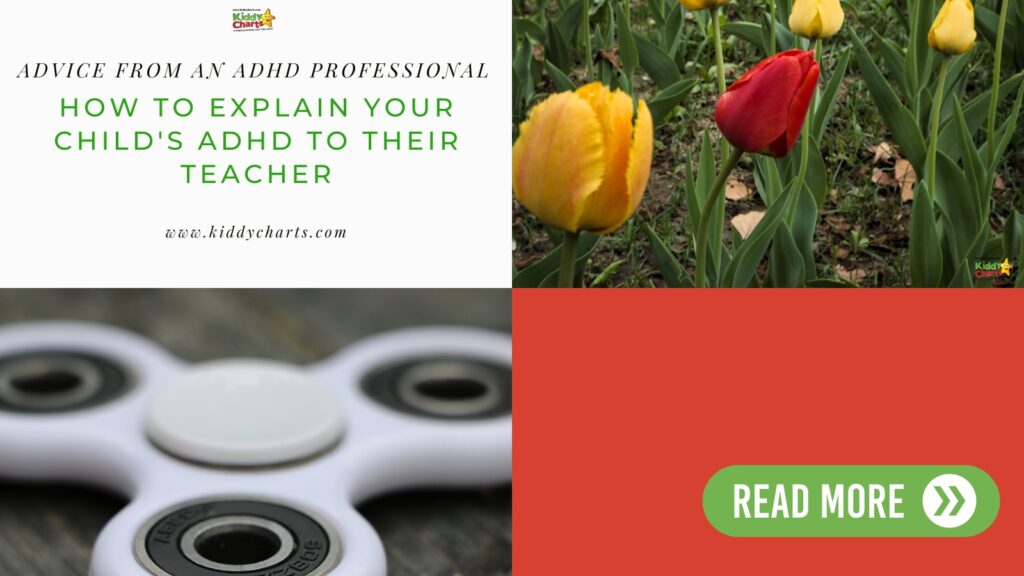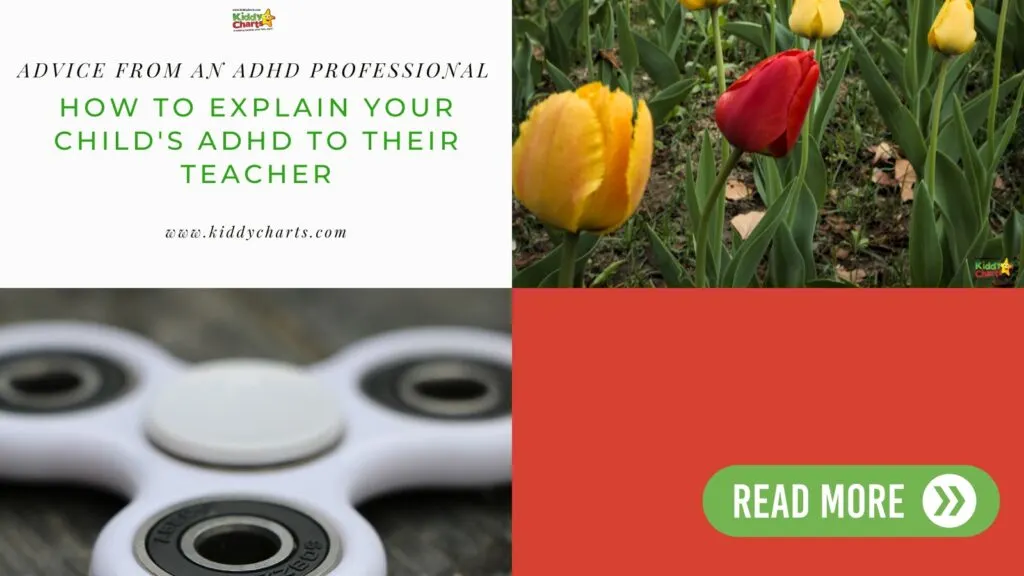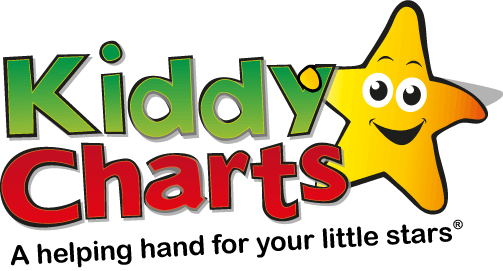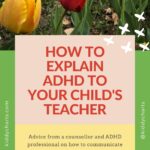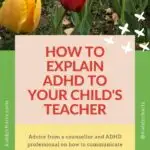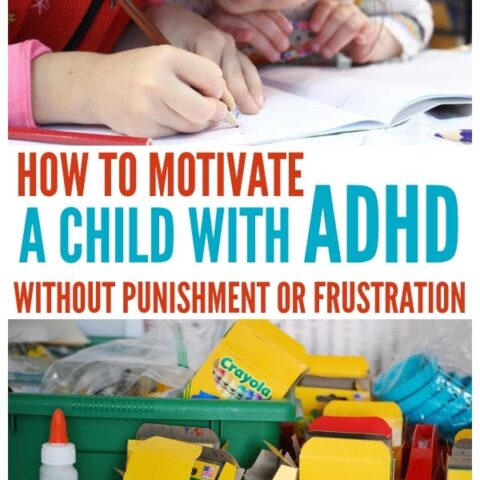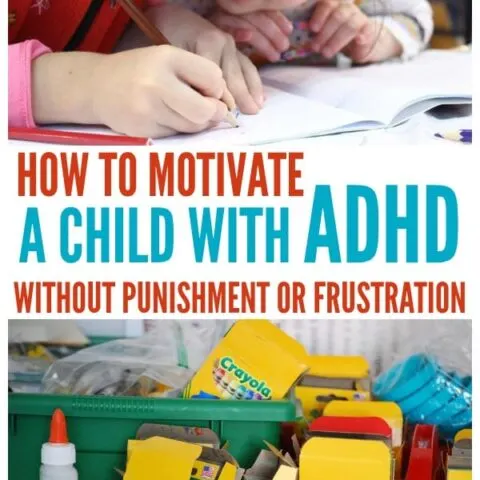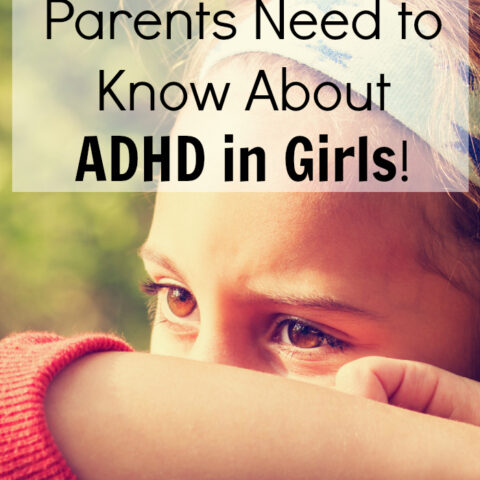We are continuing our range of ADHD resources for parents and teachers with a look at communication and explaining ADHD to teachers. This can cause problems for parents and children alike according to Sarah Templeton from Headstuff ADHD Therapy, our guest writer for these articles.
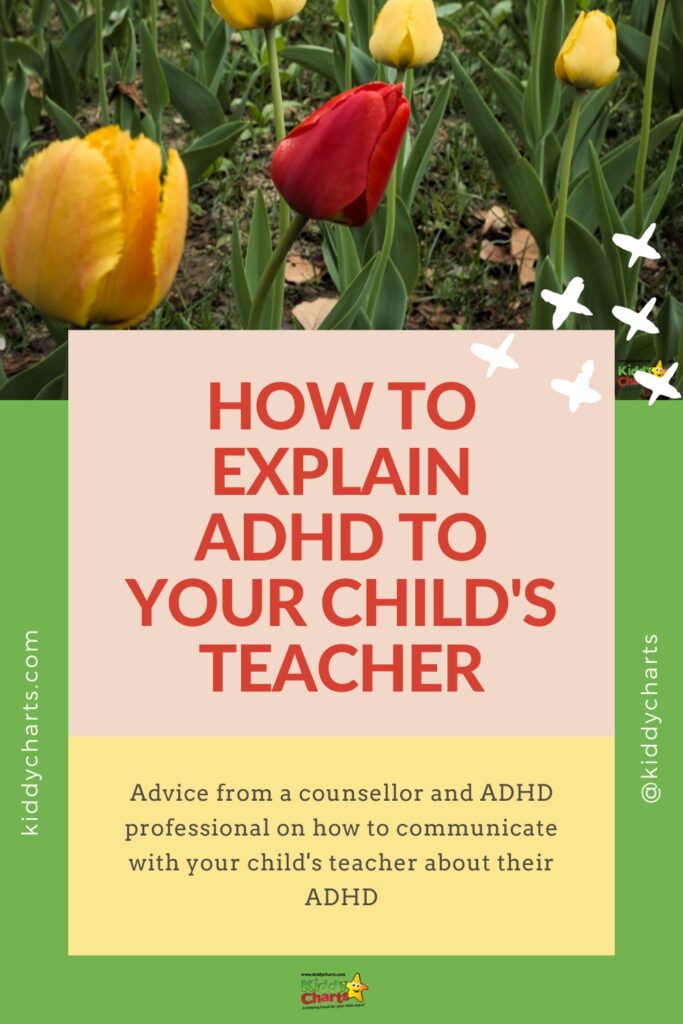

Not only though, is this a challenge for parents, and children, but you might be surprised to learn is it also causes problems for teachers.
Don’t forget to check out Sarah’s books to help both parents and teachers if you get the chance.
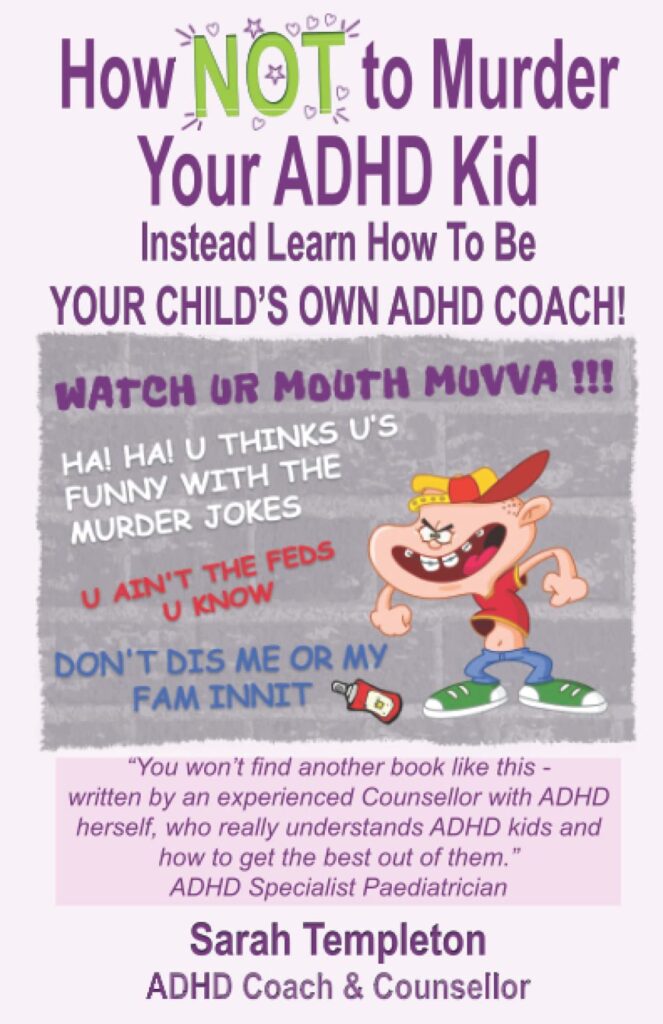
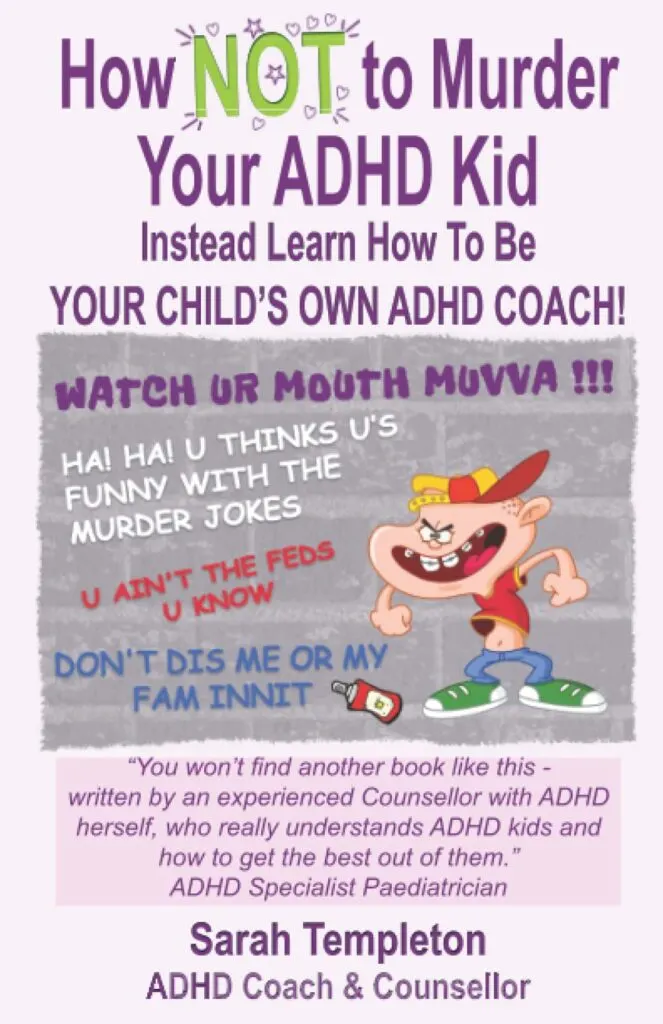
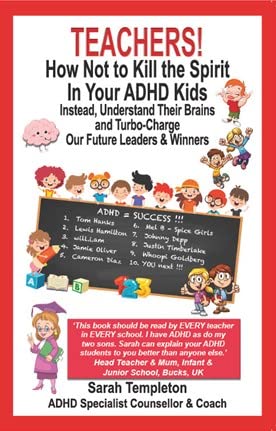
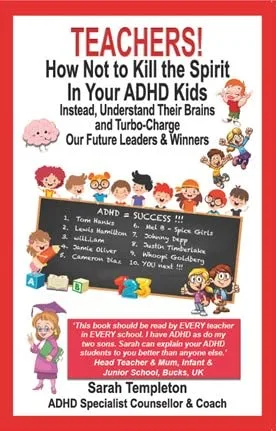
Teachers and ADHD: You’ll be surprised how little training teachers get
Firstly, let’s get one thing clear. Most teachers are not trained in what ADHD is. At most they might have some idea that it is to do with hyperactivity and distraction.
Parents who think teachers are fully versed in all things ADHD are often surprised to hear how little training teachers actually get around it.
A recent graduate teacher I know told me that in three years of teacher training she received a total of three hours in all neurodiverse condition teaching. That’s not just ADHD. That’s also ASD, dyslexia, dyspraxia, dyscalculia, dysgraphia, and a whole host of other neurodiversities.
That is three hours training in three years!
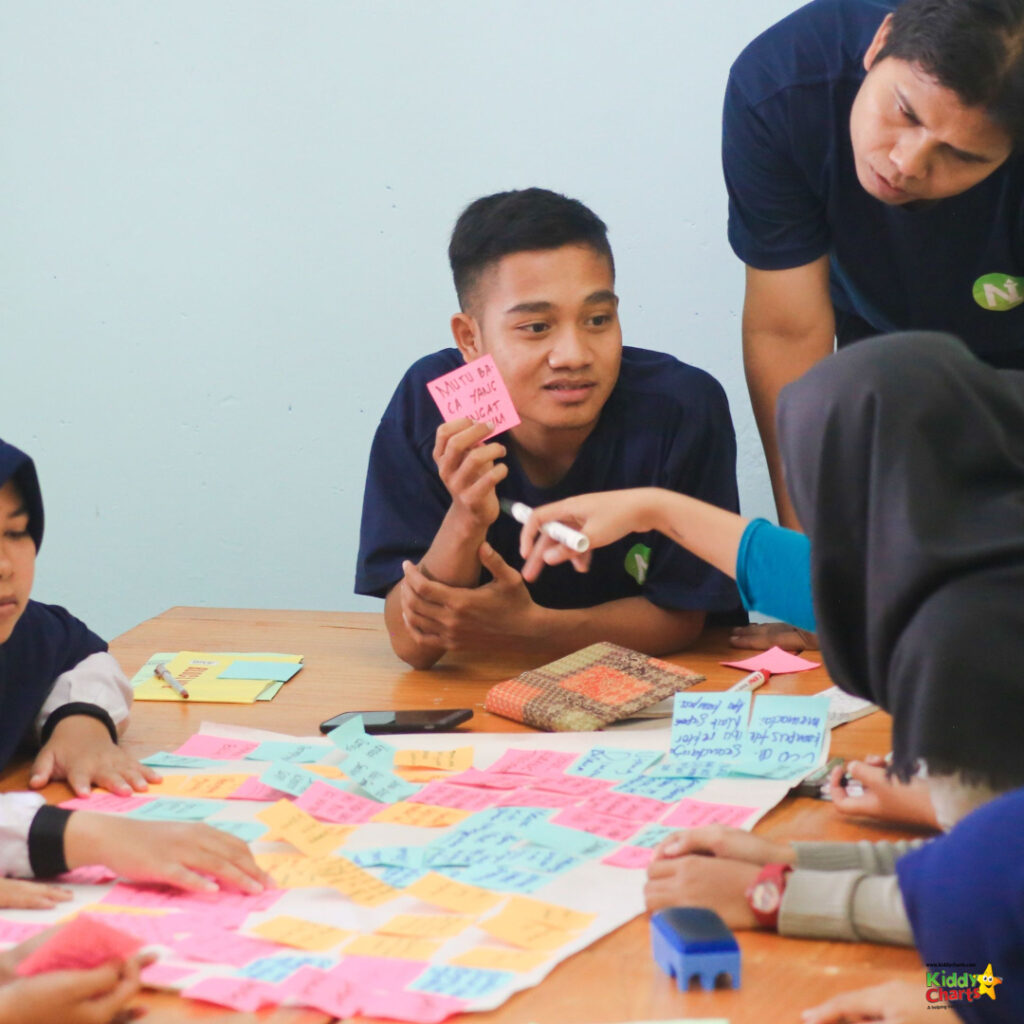
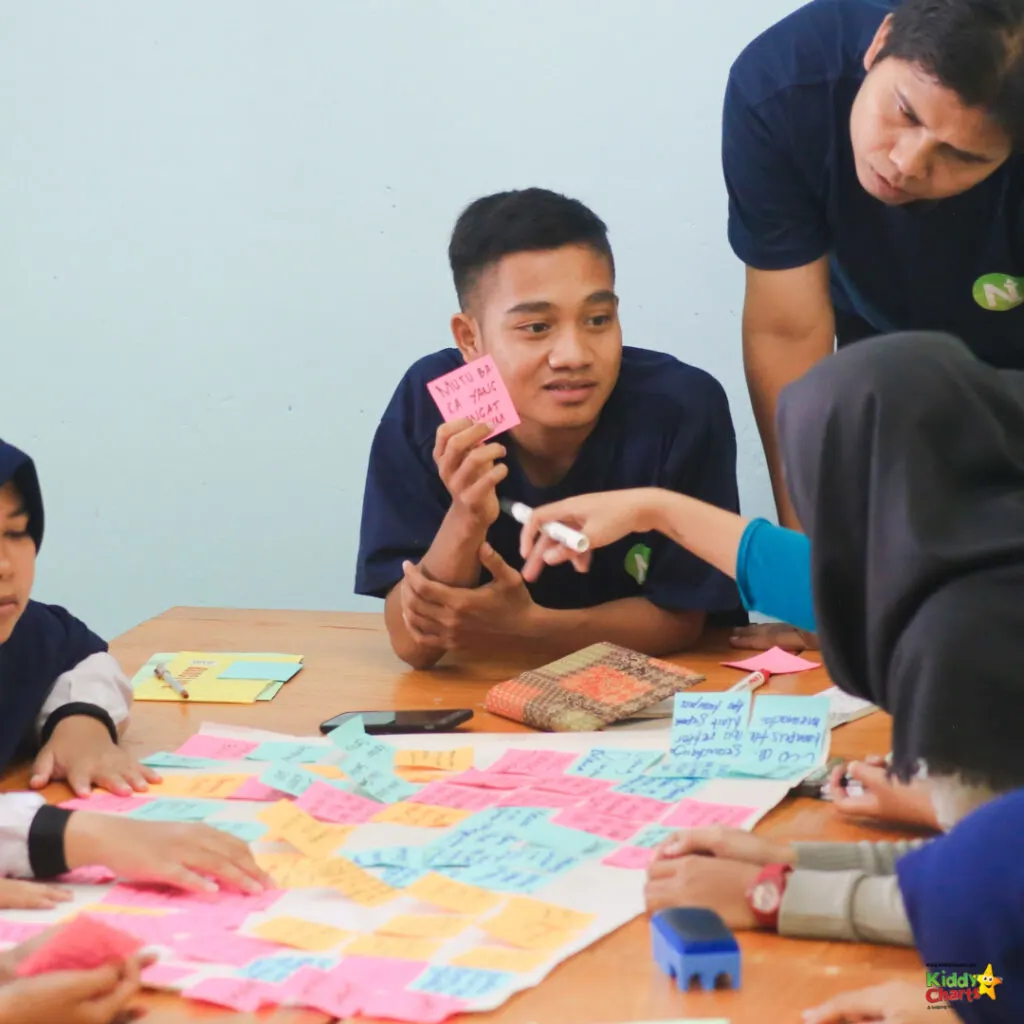
(Editor’s note: Do contact us with more information on this, as my feeling as editor, and parent to neurodiverse children, is that this is woefully inadequate for educational establishments to not train teachers in something that affects 1 in 7 of the population)
We need to dispense with the fact that the teacher is more ADHD aware than you.
Assuming your child has reached around the age of five by the time they go to school, you will have five years more experience of ADHD than most teachers. And we certainly don’t blame the teachers for this. ADHD needs to be included in their training, and I am part of a group campaigning for this to happen.
But as I say, it’s very important to know before we start that your child’s teacher probably has very little understanding of ADHD unless they happen to have it themselves or have children diagnosed.
“Working with one ADHD child means you have worked with one ADHD child”
The second very important thing to know is that no two ADHD children are the same. I have worked with literally thousands of children and adolescents with ADHD and have yet to come across two who are even faintly similar. So just because a teacher has worked with one ADHD child, doesn’t mean they will have the first clue about yours and their particular traits, strengths and struggles.


We also know teachers are extremely busy people. They are under a huge amount of pressure usually with class sizes of around 30 and swamped with paperwork, marking homework and managing all the different personalities 30 children can bring.
I firmly believe it’s right for you to bring to the notice of the teacher everything about your ADHD child, but we need to do that in the easiest and most time-effective way possible. Taking into account there may be other children in the class with other neurodiversities all presenting differently.
Explaining ADHD to teachers: How to communicate with them about your child
Where possible, and if your child is at an infant school with one teacher, I would urge you to arrange an appointment with that teacher. Take with you a typed up list of all the ADHD traits your child has, how these will present, and how they are best dealt with.


Something along the lines of this:
ADHD TRAIT – Distraction
Maisie becomes distracted very easily.
This is usually in classes that are very academic and not creative.
She is better when she is up and moving, for example, drama, dance and art classes.
Support: To Re-focus
She won’t want attention drawn to her by calling out her name, so it’s best to just walk past her desk, meet her eyes, and smile. This will bring her ‘back into the room’. A slight nudge of her desk, if she is so distracted she doesn’t even notice you, will also jolt her back to focusing on the lesson.
It’s important, the teacher knows which ADHD traits give your child the most problem and the way your child would like this issue to be handled. So make sure you sit down with your child, and have a chat with them about the things they struggle with most at school and how they would like these to be dealt with.
Be very careful with your wording. Always keep it positive. I would start the conversation off by saying something like:
“Because of your fabulous ADHD brain and the way it thinks differently, there will be times when you will do things differently to some of the other children. That’s completely fine because it’s your turbocharged ADHD brain doing that, so we just need to find the best ways that YOU want the teacher to help you”.
Sarah Templeton, Headstuff ADHD Therapy
Your child will come up with a list of issues, probably not at one sitting, so you might need to revisit this two or three times before you go to the teacher
What might you need to raise with the teachers?


Some of the issues that may come up could be:
- Struggling to sit still,
- Needing to doodle or keep something moving,
- Needing to go to the toilet, more often than others,
- Not being able to sit in one seat for 45 minutes,
- Losing focus,
- Struggling to understand what the teacher means,
- Not being able to keep up and needing extra time, and
- Being bored.
All of these issues can be overcome, but it’s up to you and your child to come up with solutions. We can’t expect the teacher to know what is going to work for each individual ADHD child.
Some parents run reams off the Internet about ADHD and highlight the bits that relate to their children. This is not a bad idea as long as the pages don’t run to too many! Another idea is to buy one of the books on the market specifically written to help teachers understand ADHD. I’ve written one, but there are others to choose from. You could go through one of these books and highlight the issues that relate to your particular ADHD child.




If your child isn’t diagnosed, but is definitely struggling, and you are perhaps at the stage where you are gathering information ready for an ADHD assessment, encourage the teacher to put an individual learning plan or an ILP in place.
It’s a misconception that you need an EHCP to have one of these. You don’t. But an individual learning plan will help teachers, especially if your child has more than one, know how and where they struggle, and how best to ease that situation.
Be prepared for surprised teachers
Most teachers are genuinely surprised how many traits are connected to ADHD. You can inform them that ADHD is a big umbrella and a lot comes under it – which also means your child is likely to have some of the coexisting conditions. You can ask the teacher to keep an eye out for dyslexia, dysgraphia, dyscalculia and dyspraxia. These are likely to show up in the classroom first, and are all connected to ADHD.


If you work as a team, all wanting the best for your child, and work together, it will make the world of difference to your child’s school years.
If you like this, check out the other ADHD resources for parents and teachers on the site, and do subscribe too:
Here are some of the articles you might like:
ADHD on KiddyCharts Part 3
Here are a selection of articles from KiddyCharts on ADHD - do check out all of them on our resources pafge though.
ADHD and lying: Why do kids do it, and what can you do about it all?
Sometimes ADHD kids can lie - find out why this happens, and what you can do about it here.
What to do when ADHD and stealing collide
ADHD and stealing can potentially coexist - we look into what causes this and strategies for helping.
ADHD sleep issues: 10 tips to help your ADHD kids sleep
If your child had ADHD, they may also struggle to sleep. Check out some of the suggestion on how you can help, as well as how they can help themselves.
And more here too, from other sites:
Other articles on ADHD from the web (Part 2)
Here are some more articles on ADHD from the internet - do check them out alongside the other resources that we have on our site too.
5 Simple Ways to Motivate a Child with ADHD
Some ways to help motivate those with ADHD - something that can be really difficult to do!
What's it like for a child with ADHD?
An over-arching article about what it is like as a child with ADHD.
10 Things Other Parents Need to Know About ADHD in Girls
ADHD in girls is something that we are only just discovering - with girls being diagnosed later in life on average that boys. Check this article out for more info now.
We do hope you find this, and other articles and resources on the site helpful, and we see you again soon.
Helen
